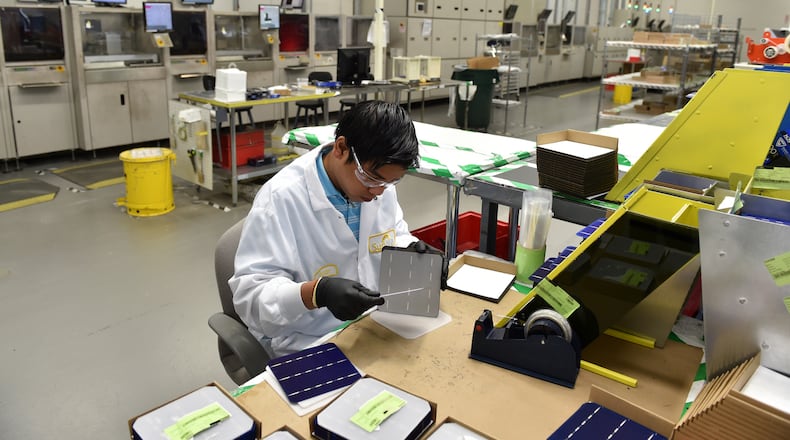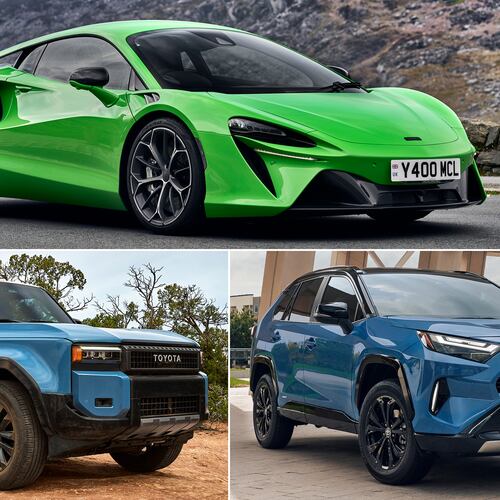The U.S. International Trade Commission on Friday sided with a bankrupt Gwinnett company's complaint that America is being flooded with cheap imported solar cells, setting up a potential trade battle with China or other countries that export solar panels.
Norcross-based Suniva said it was "gratified" by the trade commission's finding, which opens the way for the agency to recommend actions such as trade quotas or tariffs on imported solar panels. If such penatlies were imposed, China or other countries might retaliate with similar measures.
President Donald Trump will have the final decision on what trade penalties to impose.
“We brought this action because the U.S. solar manufacturing industry finds itself at the precipice of extinction at the hands of foreign market overcapacity,” Suniva said in a statement.
But a trade group for companies that install solar power projects ranging from roof-top panels on homes to giant solar power farms said the decision could endanger 88,000 jobs and derail up to two-thirds of utility-scale solar projects.
"The ITC's decision is disappointing for nearly 9,000 U.S. solar companies and the 260,000 Americans they employ," said Abigail Ross Hopper, president of the Solar Energy Industries Association, in a statement.
She said Suniva’s proposed tariffs "will double the price of solar, destroy two-thirds of demand, erode billions of dollars in investment and unnecessarily force 88,000 Americans to lose their jobs."
The trade commission's finding was unanimous that U.S. solar cell manufacturers had been harmed by an increase in imported solar cells and panels. The ITC did not mention Chinese manufacturers specifically in its decision, but did state that imports from Mexico and Korea had caused "substantial harm."
Suniva had said its business was crippled by illegal dumping of cheap solar panels in the U.S. by Chinese manufacturers, even though a Chinese firm, Shunfeng International Clean Energy Limited, bought a majority stake in the company in 2015.
The petition also was supported by another panel manufacturer, SolarWorld Americas, which is owned by a German company.
Suniva also complained that the U.S. industry was being harmed by Chinese subsidies for solar panel makers and moves by those companies that it said were aimed at circumventing U.S. tariffs by shifting production to factories in other countries.
Suniva, which shut down two plants in Michigan and Georgia, filed its petition in April, a few days after it filed bankruptcy. Late last year, the company had about 380 employees.
Suniva, which was founded in 2007 as a spin-off from the Georgia Institute of Technology, had become something of a local darling among people hoping to foster the high-tech solar industry in Georgia.
But it and other U.S solar manufacturers stumbled in recent years as Chinese manufacturers vastly expanded solar panel production and drove down prices.
The lower prices benefited customers ranging from homeowners to utility companies, powering dramatic growth in solar energy installations across the nation, including in Georgia.
About the Author
Keep Reading
The Latest
Featured


